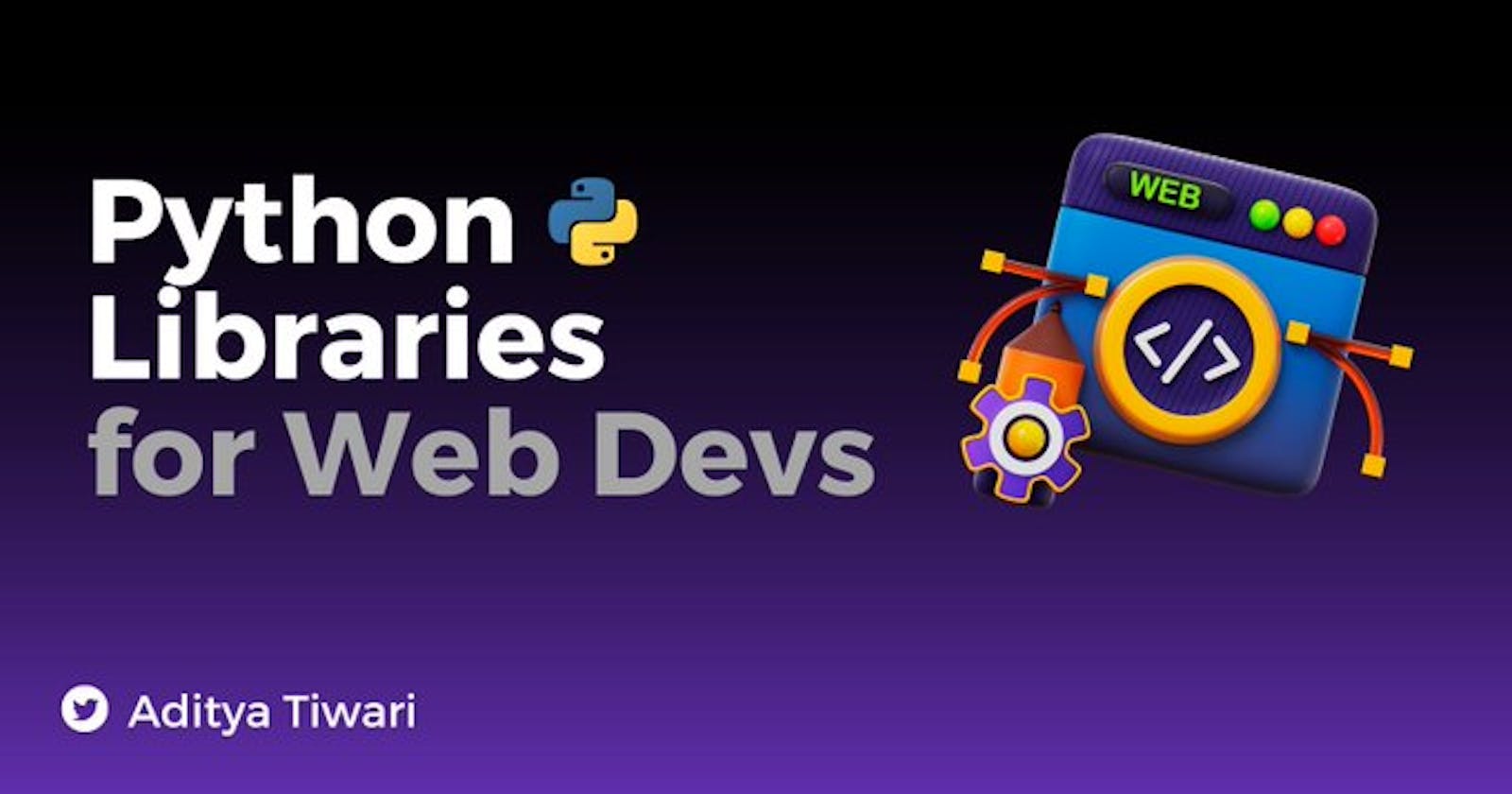Table of contents
Introduction
From the grandmasters of the web to the novice coders, the versatility and functionality of Python have made it the go-to language for web development.
In this blog, we'll dive into the most useful Python tools that will transform you into a coding powerhouse, leaving your competition in the dust. So grab your keyboard, and let's get started on this journey of discovery.
The Python Libraries
These libraries provide a wide range of capabilities & make it easier for developers to build high-quality & maintainable web apps using Python.
1. Django: A high-level Python web framework that encourages rapid development and clean, pragmatic design.
2. Flask: A microweb framework that is easy to use and provides a lightweight way to build web applications.
https://flask.palletsprojects.com
3. Pyramid: A web framework that is well-suited for both large and small projects, and offers a flexible set of tools and features.
https://docs.pylonsproject.org/projects/pyramid/en/latest/
4. WSGI: A specification for how web servers and web applications should communicate with each other, and is widely supported by Python web frameworks.
https://wsgi.readthedocs.io/en/latest/
5. Gunicorn: A high-performance Python WSGI HTTP server that is used for serving production-ready web applications.
6. SQLAlchemy: A SQL toolkit and Object-Relational Mapping (ORM) library that provides a convenient way to interact with databases in Python.
7. Jinja2: A fast and flexible templating engine for Python that is widely used in web development.
8. Requests: A Python library for sending HTTP requests and working with HTTP responses, that is easy to use and provides a wide range of features.
https://docs.python-requests.org/en/latest/
9. Selenium: A tool for automating web browsers, that is useful for testing web applications and for web scraping.
Why are these Libraries useful?
These libraries are useful for several reasons:
Productivity: They allow developers to write less code and perform common tasks more quickly, which saves time and increases productivity. Reusability: Libraries provide pre-written code that can be used across multiple projects, which reduces the amount of time and effort needed to implement new features and functionality.
Quality: Libraries are usually well-tested and maintained, which helps to ensure that the code is reliable and bug-free.
Community: By using popular libraries, developers can benefit from the support and contributions of a large community of other developers who are using the same tools.
Best practices: Libraries often embody best practices and established patterns for solving common problems, which can help developers to write better code and avoid common pitfalls.
Interoperability: Libraries can be combined and used together to build complex applications, and can also be integrated with other libraries and tools to increase their functionality.
These libraries provide a wide range of capabilities and make it easier for developers to build high-quality, scalable, and maintainable web applications using Python.
That's a wrap for today's blog.
Follow my blog for more content on python.
You can connect with me on Linkedin , Twitter and Instagram as well.

